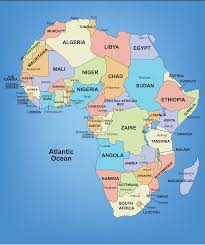Africa May Lead Global Green Industrial Revolution Drive

By Faridat Salifu
As world leaders gather for COP29 in Baku to discuss urgent climate finance strategies, Africa is emerging as a pivotal force in the green industrial revolution.
With increased investments, the continent could play a major role in addressing global climate challenges while pursuing sustainable development, a vision laid out in the Nairobi Declaration on Climate Change and Call to Action adopted in 2023.
According to the Independent High-Level Expert Group on Climate Finance, developing countries, excluding China, will need approximately $2.4 trillion annually by 2030 to meet climate goals and build resilience.
Currently, funding falls far short of this target, posing significant challenges for nations bearing the brunt of climate change’s impacts. In Africa, where rising temperatures and extreme weather have already led to widespread loss, leaders are calling for global financial support to unlock the continent’s vast renewable resources and green industry potential.
Africa is home to 60% of the world’s best solar resources, abundant wind and hydropower potential, and critical minerals required for global decarbonization.
With the continent’s large youth population and natural capital, African leaders argue that greater climate finance could help create millions of green jobs, enhance resilience, and transform local economies.
By fostering renewable energy-based industries, Africa could also strengthen global supply chains with sustainable products and technologies.
The consequences of failing to fund Africa’s climate initiatives are increasingly clear. Already, African countries have faced severe climate impacts: wildfires, droughts, floods, and cyclones have caused thousands of deaths, displaced millions, and wiped out critical resources.
If temperatures surpass 1.5°C above pre-industrial levels, these effects will worsen, pushing more people to migrate and threatening stability.
However, with successful climate finance negotiations, African countries are well-positioned to lead a new wave of green industrialization.
Many African nations, such as Angola, Mozambique, and Zambia, are advancing up the value chain by processing minerals domestically.
Others, like Mauritania, Morocco, and Namibia, are exploring green hydrogen production to supply the world’s growing demand for low-carbon energy.
While African governments are laying the groundwork for this transformation, global support is needed.
Expanded access to markets, clearer carbon pricing, and long-term contracts for green products could bring about the capital flows Africa needs to meet global climate goals.
With adequate investment, Africa’s potential for climate-positive growth could be a cornerstone of the global green economy, benefiting both the continent and the world.
